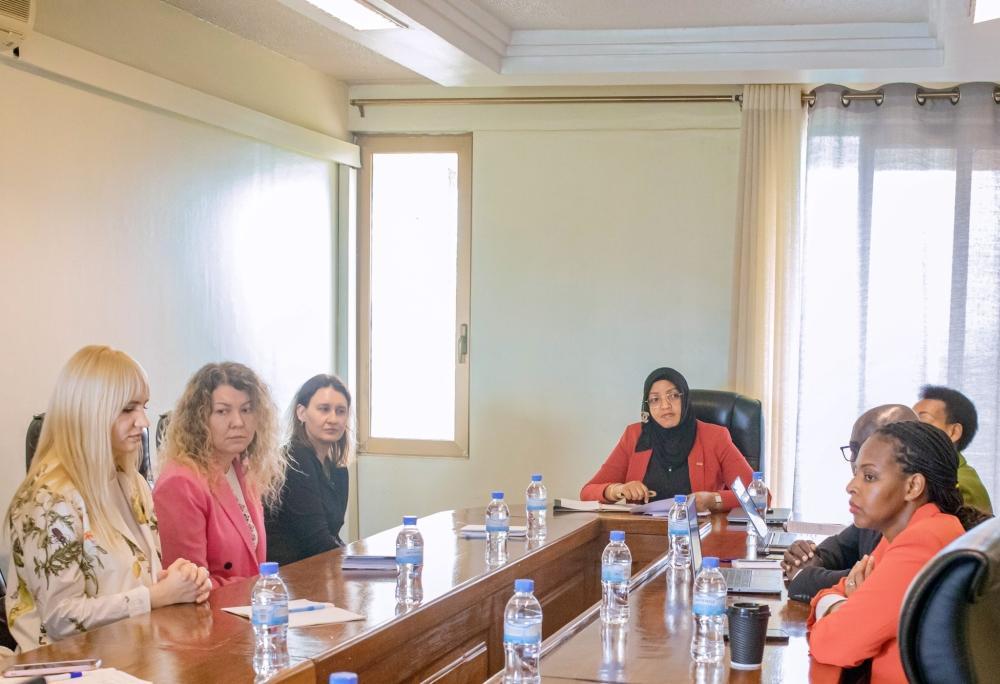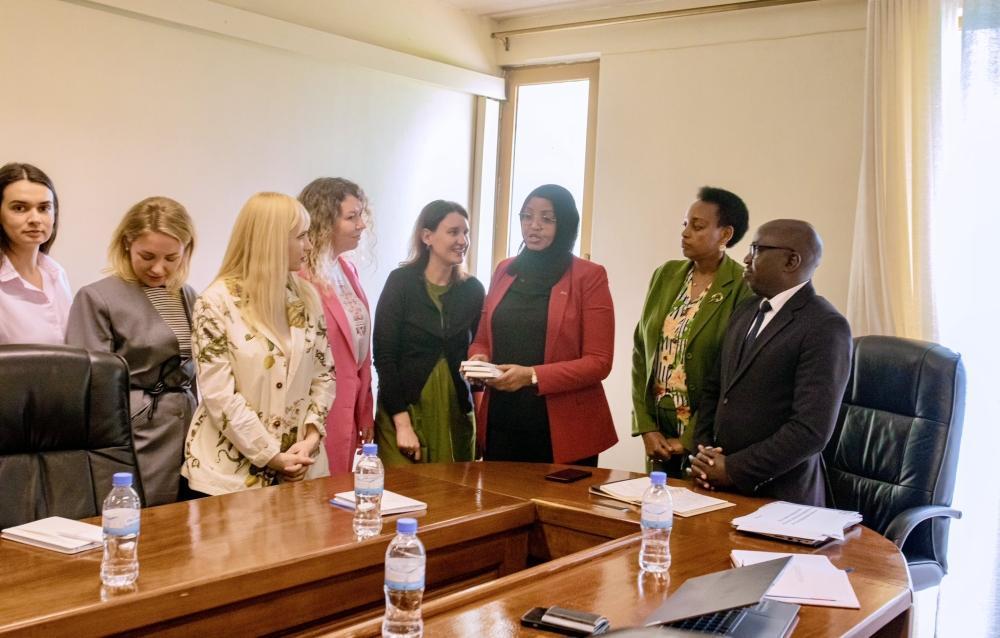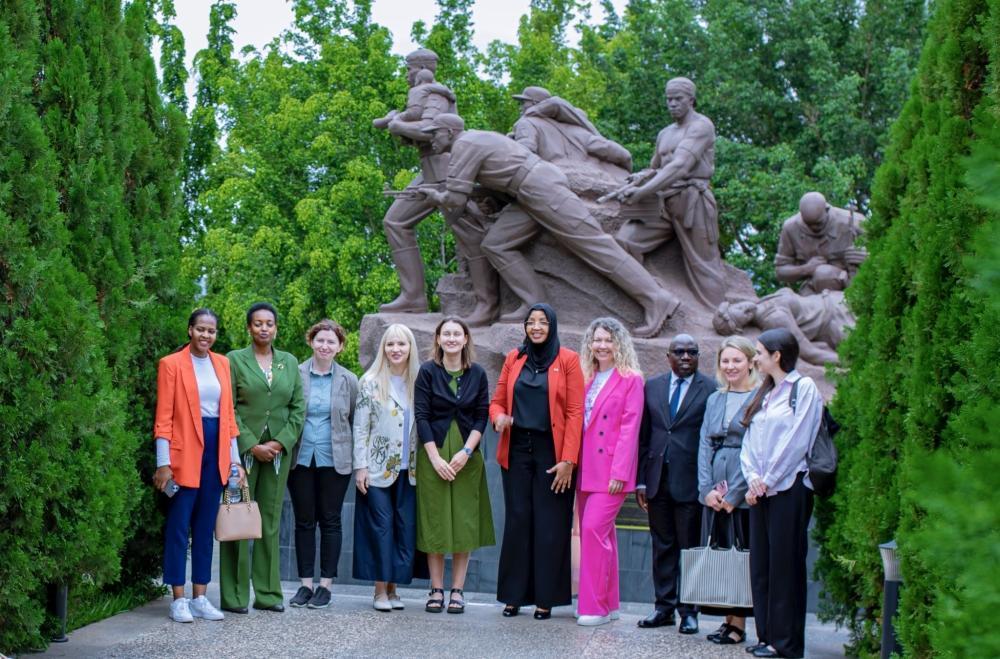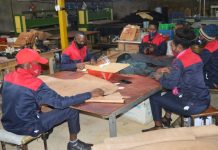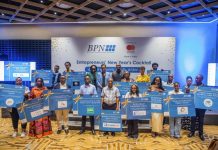Africa-Press – Rwanda. A delegation of Ukrainian women leaders from various sectors, united under the foundation “The Day After,” have concluded a five-day visit to Rwanda. Their mission was to exchange insights on post-war recovery, transitional justice, and the role of women in peacebuilding.
The six-member team hopes for an end to the ongoing war in Ukraine. Their goal is to actively involve women in rebuilding the country. Through partnerships with NGOs and local communities, they are advocating for women’s participation in Ukraine’s recovery efforts. During their visit to Rwanda, they engaged in activities aimed at understanding Rwanda’s post-genocide recovery from multiple perspectives.
During their stay, the delegation met with Rwandan members of parliament, interacted with civil society leaders, and visited Avega Agahozo Village.
They also toured Kigali Genocide Memorial where they gained in-depth knowledge about the 1994 Genocide against the Tutsi in Rwanda. They learned how Rwanda’s economy was devastated, requiring the Rwanda Patriotic Front (RPF) to rebuild the nation from the ashes following the liberation struggle.
Ukraine has been at war with Russia for three years now. While reports indicate that both sides are exploring pathways to peace, much remains uncertain. Hosted by Aegis Trust Rwanda, the Ukrainian delegation reflected on their visit, sharing key takeaways with The New Times on the final day of their tour, on Friday, March 21.
They emphasized the profound lessons they drew from Rwanda’s history, its recovery process, and its remarkable development.
Alina Miakenka, a human rights activist and co-founder of “The Day After,” has held leadership roles in Ukraine’s parliament and private advocacy sectors, including as CEO of the Ukrainian Women’s Congress. She expressed deep interest in the themes of justice and forgiveness.
“As a lawyer, I was eager to understand the perspectives of justice, peace, and forgiveness. Being here has expanded my understanding because these concepts are complex and involve multiple players. When you experience firsthand the horror that Rwanda endured and see how the country successfully found solutions, it changes your outlook,” Miakenka said.
She reflected on the innovative approach of Rwanda’s Gacaca courts which played a crucial role in post-genocide justice and reconciliation.
“The key lesson I’ve learned is that Ukraine must develop its own homegrown solutions—ones rooted in our history, mentality, and understanding of justice. We need to stand firm on that,” she said.
Miakenka also highlighted the unity embedded at every level of Rwandan society, from government policies to grassroots communities.
“I love that unity in Rwanda exists at all levels—from government policies to local communities and even on a personal level. Youth play a crucial role as ambassadors of peace and peacebuilders. I believe we should embrace the same approach in our country and apply it,” Miakenka said.
She emphasized that Rwanda is “not just a country of a thousand hills but also one of a thousand lessons.”
She was particularly impressed by the high level of women’s participation in leadership and decision-making.
“Rwanda has always been at the top of our list of the world’s best examples of women’s empowerment. It is crucial for women to have a seat at the decision-making table,” she said, stressing the importance of equipping women with the knowledge and tools needed to actively participate in peacebuilding and post-war reconstruction.
“Women must go beyond traditional roles and engage in broader state affairs. It’s time for our voices to be heard,” she stressed, noting that Ukraine still lacks sufficient policies to support women’s leadership.
Miakenka explained that upon returning to Ukraine, their team plans to create policy papers, make presentations, and collaborate with media, government, NGOs, and academic institutions.
These efforts aim to enhance women’s engagement in post-war reconstruction.
Anna Nikolaienko, another co-founder of the foundation, first learned about Rwanda in 2018 while navigating her way into the Ukrainian parliament, where she eventually served.
During that time, she discovered that Rwanda ranked among the top countries in the world for women’s representation in parliament. She noted that they are actively championing women’s political participation and the peacebuilding process.
Reflecting on the lessons from Rwanda, she acknowledged that while the war crimes in both countries differ in nature, they share a fundamental commonality—crimes committed against human beings.
“All parties involved in conflict are human beings, and there are universal tools we can use for human development. While reconciliation with our enemy (Russia) may not be a topic at this moment, what we can focus on right now is internal reconciliation—within our country, our communities, and among our people. We see great potential for progress in this,” she added.
“The nature of the Genocide against the Tutsi is different from our war, but the pain is the same,” Nikolaienko said.
“One of the most powerful lessons from Rwanda is the emphasis on inclusion—whether for women, youth, or people with disabilities. Here, mechanisms for inclusion are not just declarations; they are actively implemented.”
Before visiting Rwanda, Nikolaienko thought peacebuilding primarily revolved around high-level agreements and national policy implementation.
“Now, I see that peacebuilding extends to all levels—families, communities, schools, and even small businesses. This is where we need to focus, alongside addressing the ongoing conflict. Peace is not just the absence of war or violence; it is also about personal perceptions and connections,” she explained.
She was particularly inspired by the way “women in Rwanda claim their place at the decision-making table.”
“They don’t question whether they belong there—they simply step up and lead.”
She emphasized the importance of male allies in this process.
“It’s remarkable to see that women here are not only empowered but also supported by their male colleagues, who genuinely acknowledge and respect their role in leadership,” she said.
Iryna Drobovych, another member of the team, emphasized that war crimes share common patterns across conflicts, particularly sexual violence.
“Many women have suffered sexual violence in the Russia-Ukraine war, leading to long-term trauma and societal destruction. Documenting these war crimes, as was done in Rwanda, is crucial. We must preserve evidence to ensure justice. Since traditional legal systems often struggle to address such crimes, we are advocating for international justice mechanisms,” Drobovych said.
She highlighted that their organization is focusing on mental health, medical support, and community reintegration for women affected by war-related violence.
“In Ukraine, these are sensitive topics that we often avoid discussing. However, as human rights activists, we must break this silence.”
For More News And Analysis About Rwanda Follow Africa-Press

